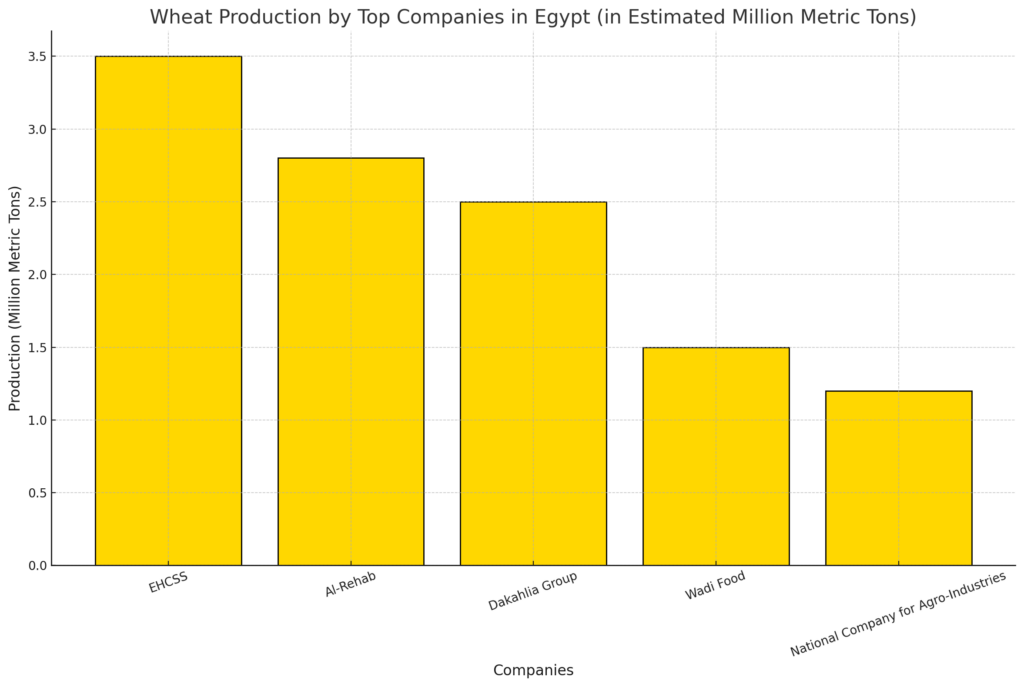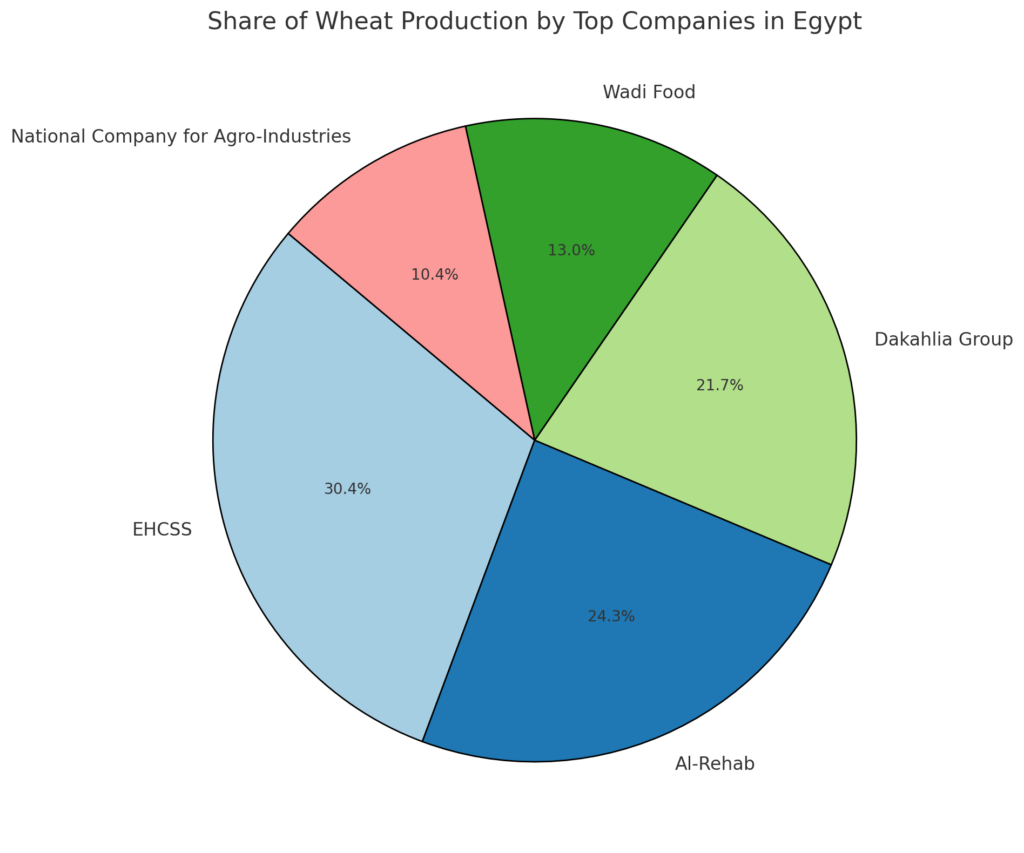Egypt is Africa’s largest wheat producer, leveraging the fertile lands of the Nile Delta and Upper Egypt. The country’s wheat industry is supported by both government and private entities, ensuring a steady supply for domestic consumption and bolstering food security. In this report, we delve into the top wheat-producing companies in Egypt, their contributions, and their strategies for success.
🚀 Supercharge Your Insights with ESS Pro
Access over 50,000 expert market reports and connect with more than 500,000 verified industry contacts across the global food & beverage value chain.
Includes exclusive insights, top 10 rankings, live market indicators, and up to 10 custom research reports annually.
🔓 Join ESS Pro – Unlock Full Access

1. Egyptian Holding Company for Silos and Storage (EHCSS)
EHCSS is a government-owned enterprise responsible for managing wheat storage and supporting domestic production.
Key Highlights:
- Role: Handles large-scale wheat storage and distribution.
- Infrastructure: Operates modern silos with advanced storage technology to minimize losses.
- Market Influence: Plays a critical role in stabilizing wheat prices and ensuring food security.
- Contribution: Supports local farmers through procurement initiatives.
EHCSS ensures the efficient handling and distribution of Egypt’s wheat production, reducing reliance on imports.
2. Al-Rehab for Agriculture Development
A major private player, Al-Rehab specializes in large-scale wheat farming and contributes significantly to Egypt’s agricultural sector.
Key Highlights:
- Farming Practices: Utilizes advanced irrigation systems and mechanized farming.
- Production Capacity: Produces high-quality wheat varieties suited for domestic consumption.
- Sustainability: Focuses on water-efficient practices to tackle Egypt’s water scarcity.
- Regional Impact: Operates across multiple fertile regions, including Upper Egypt.
Al-Rehab’s focus on innovation and sustainability ensures its competitive edge in the wheat market.
3. Dakahlia Group
Dakahlia Group is a diversified agribusiness with a strong presence in wheat production and related agricultural activities.
Key Highlights:
- Production Scale: Operates extensive wheat farms in the Nile Delta.
- Innovation: Invests in modern farming technologies, including precision agriculture.
- Integration: Combines wheat production with milling operations to add value.
- Community Support: Provides training programs for local farmers.
Dakahlia Group’s integrated approach boosts productivity and enhances the quality of Egypt’s wheat supply.
4. Wadi Food
Wadi Food, primarily known for its olive and food products, has recently ventured into wheat farming to diversify its agricultural portfolio.
Key Highlights:
- Sustainable Farming: Implements eco-friendly practices in wheat cultivation.
- Focus Area: Operates in the fertile lands of the Nile Delta.
- Market Reach: Supplies wheat for high-quality flour and food production.
- Future Plans: Expanding wheat farming operations to reduce import dependency.
Wadi Food’s diversification strategy highlights the growing importance of wheat in Egypt’s agriculture sector.
5. National Company for Agro-Industries
This privately-owned company focuses on high-yield wheat varieties and supports domestic markets with quality grains.
Key Highlights:
- Production Capacity: Operates large-scale farms in strategic agricultural zones.
- Technology Integration: Uses smart farming technologies to optimize yields.
- Processing Facilities: Runs milling and packaging units for added value.
- Export Potential: Explores regional markets for wheat-based products.
The National Company for Agro-Industries combines modern techniques with traditional expertise to drive growth.

Key Factors Supporting Egypt’s Wheat Industry
- Fertile Lands: The Nile Delta provides optimal conditions for wheat cultivation.
- Government Support: Subsidies and guaranteed purchase prices for farmers encourage production.
- Technological Advancements: Investments in mechanized farming and smart agriculture.
Challenges in Wheat Production
- Water Scarcity: Limited water resources affect irrigation-dependent farming.
- Climate Change: Unpredictable weather patterns impact yields.
- Import Dependence: Despite local production, Egypt remains a major importer of wheat.
Opportunities for Growth
- Irrigation Modernization: Expanding efficient irrigation systems can boost yields.
- Public-Private Partnerships: Collaboration can enhance resource sharing and innovation.
- Export Potential: Focusing on wheat-based products could create new market opportunities.
Conclusion
The top wheat-producing companies in Egypt, including EHCSS, Al-Rehab, Dakahlia Group, Wadi Food, and the National Company for Agro-Industries, play a critical role in ensuring food security and supporting the economy. By leveraging technology, sustainability, and innovative practices, these companies continue to strengthen Egypt’s position as Africa’s leading wheat producer.



